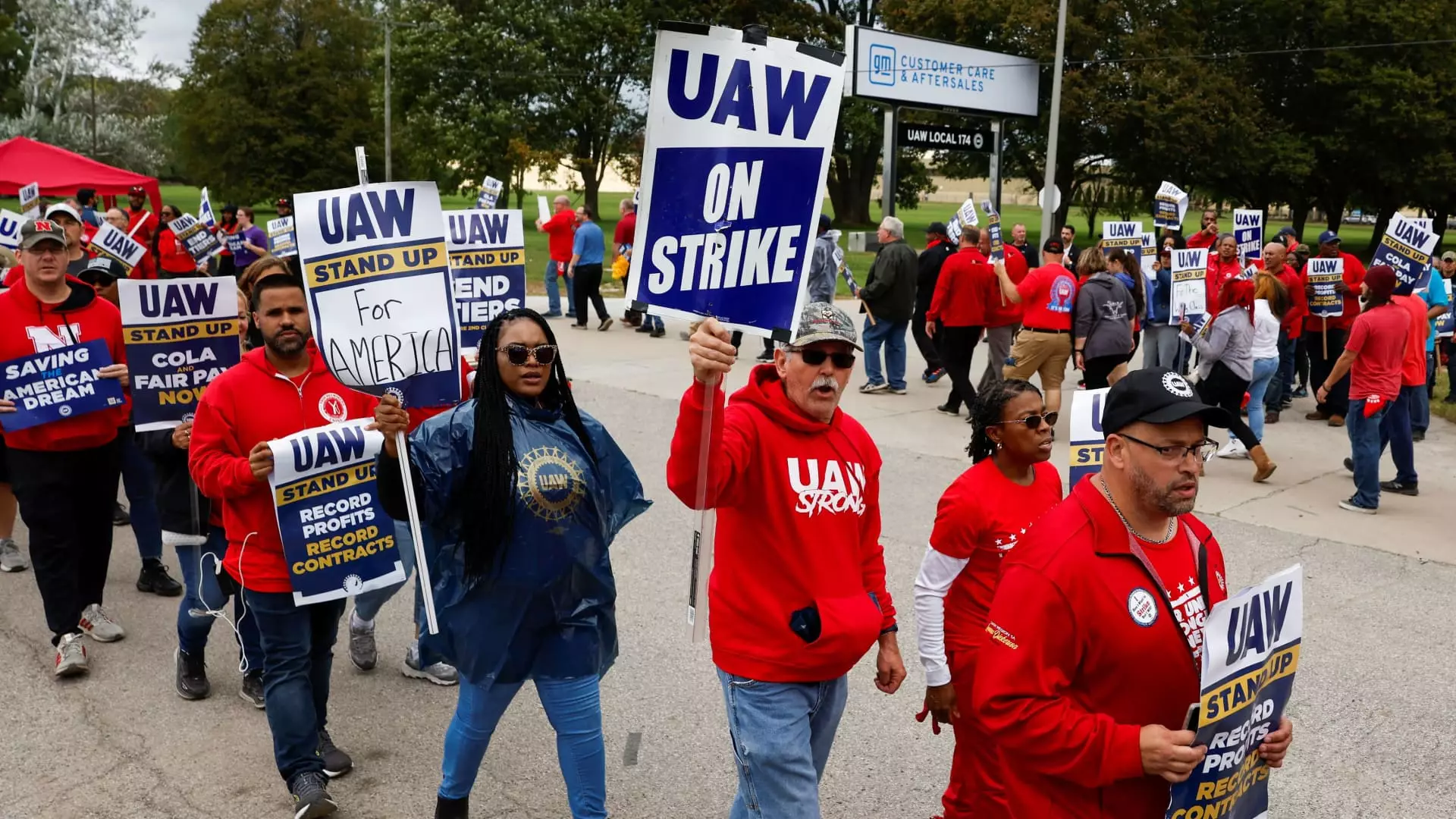The rift between the Detroit automakers and United Auto Workers (UAW) has reached a boiling point, with tensions escalating and accusations flying from both sides. The UAW, in an unprecedented move, threatens to expand its U.S. plant strikes after two weeks of work stoppages and the diminishing chances of a swift resolution. At 10 a.m. ET on Friday, the UAW is expected to announce additional strike targets if substantial progress is not made in negotiations with General Motors, Ford Motor, and Stellantis. As frustrations run high, the union’s commitment to reaching a deal and ending the strikes is being called into question.
Both GM and Stellantis have grown increasingly frustrated by what they perceive as a lack of participation from UAW President Shawn Fain and delays in receiving counter proposals from the union. Sources reveal that the union has set a new Friday deadline before high-level meetings can take place between Fain and the companies. This raises doubts about the union’s urgency to reach a resolution. Compounding the issue, the UAW has yet to put forth counter proposals to the offers made by the automakers a week earlier. These delays and lack of urgency have left company negotiators exasperated, as they are accustomed to round-the-clock bargaining to expedite the negotiation process. The union’s strategy, including the timing of its counteroffer submission, has raised eyebrows and prompted questions about its commitment to reaching a fair agreement.
Claims and Counterclaims: Tension on Both Sides
Amidst the ongoing negotiations, concerns about the pace of talks persist. UAW President Fain criticized the automakers for failing to provide counter offers to the union’s proposals prior to the initiation of strikes on September 15. However, all three automakers maintain that they have made substantial offers to the union. These offers include significant hourly wage increases, substantial bonuses, and enhancements to workers’ benefits packages. Ford, in particular, has offered to reinstate prior cost-of-living adjustments to offset inflation. Despite these offers, the UAW demands more, including a 40% wage increase, the abolition of the “tier” system for new hires, a shorter workweek, and additional benefits related to electric vehicles. The growing disparity between the demands of the UAW and the offers by the automakers has further widened the rift between the two parties.
Unsettling Incidents and Safety Concerns
As the strike continues, disturbing incidents have unfolded on the picket lines. Union members have reported confrontations, gun intimidations, hit-and-run accidents involving vehicles, and vandalism of company property. In a particularly harrowing incident, five individuals sustained minor injuries when a vehicle drove through a UAW picket line at a GM parts facility in Flint, Michigan. GM swiftly responded by banning the driver and two additional contractors from its properties. The escalating violence and dangerous behavior on both sides have further strained the already tense atmosphere.
Claims of Mischaracterization and the Call for Safety
In response to the UAW’s claims, Stellantis released a statement accusing the union of mischaracterizing incidents that did not involve replacement workers. The company asserts that UAW picketers engaged in dangerous and violent behavior at its parts distribution centers, including slashing truck tires, jumping on vehicles, and hurling racial slurs at Stellantis employees who were merely crossing the picket line to perform their duties. Stellantis emphasizes that it has not hired any outside workers to replace striking UAW members and called upon Fain and other UAW leaders to prioritize the safety of all employees, including those on the picket line.
As tensions continue to mount and the strike reaches its third week, the chances of an immediate breakthrough are dwindling. The lack of progress, delays in counter proposals, and growing frustrations on both sides are impeding the negotiation process. Moreover, the series of unsettling incidents and concerns surrounding the safety and well-being of workers further complicate the situation. The future of these negotiations remains uncertain, leaving both the Detroit automakers and the UAW to grapple with the complex task of bridging the growing divide.


Leave a Reply